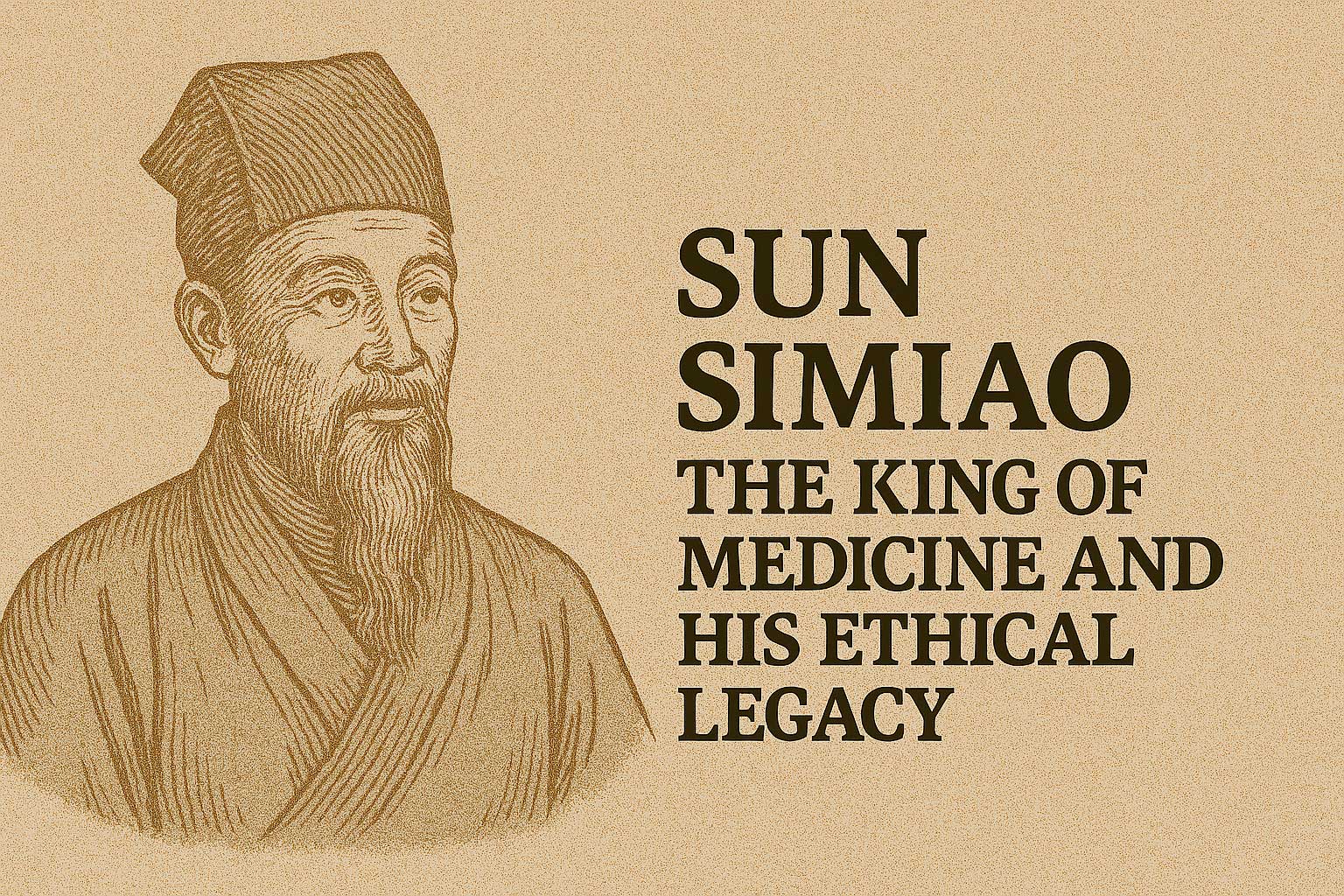In the rich history of Traditional Chinese Medicine (TCM), few figures are as revered as Sun Simiao (孙思邈) — known respectfully as the “King of Medicine” (药王). Living during the Sui and Tang dynasties (581–682 CE), Sun Simiao was not only a prolific medical scholar and practitioner, but also a moral philosopher whose writings laid the ethical foundation for TCM practice.
His wisdom endures through works like the Qian Jin Yao Fang (Essential Prescriptions Worth a Thousand Gold) and his famous Medical Ethics Precepts, which continue to inspire generations of healers.
🔶 Life and Legacy
- Birthplace: Jingzhao (modern-day Shaanxi Province)
- Era: Late Sui to early Tang dynasty
- Nickname: “King of Medicine” (药王)
- Lifespan: Allegedly lived over 100 years
Sun Simiao was known for:
- Deep compassion and humility
- Treating rich and poor equally
- Emphasizing prevention and dietary therapy
- Compiling massive encyclopedic medical texts that integrated herbal medicine, acupuncture, pediatrics, gynecology, and Taoist health practices
🔶 Major Works
1. Qian Jin Yao Fang (千金要方)
Essential Prescriptions Worth a Thousand Gold
- 30 volumes, over 5,000 prescriptions
- Systematic medical knowledge for practitioners
- Focus on prevention, women’s health, pediatrics, emergency medicine
2. Qian Jin Yi Fang (千金翼方)
Supplement to Essential Prescriptions Worth a Thousand Gold
- Companion volume with additional clinical applications and case insights
- Broader inclusion of folk remedies and empirical observations
These works are considered treasures of Chinese medical literature, referenced for over a millennium.
🔶 The Ethical Heart of Medicine: Sun Simiao’s Precepts
One of Sun Simiao’s most enduring contributions is the “Dà Yī Jì Chéng” (大医精诚) — “The Great Doctor Must Have Sincerity and Integrity”, where he outlines the core values of a physician:
“A great physician must not care whether a person is noble or low, rich or poor, old or young, beautiful or ugly, friend or enemy… One should treat them all as if they were close family.”
🌿 His emphasis on:
- Compassion (仁心)
- Humility
- Ethics over profit
- Lifelong learning and self-cultivation
…has shaped TCM’s identity as a healing art rooted in virtue as much as in technique.
🔶 Sun Simiao’s Integration of Daoism, Confucianism, and Medicine
Sun Simiao was deeply influenced by Daoist health preservation and Confucian moral philosophy. His work reflects a holistic worldview that:
- Blends spiritual cultivation with physical medicine
- Views health as harmony between Heaven, Earth, and Man
- Values simplicity, nature, and longevity
He promoted practices such as:
- Qigong and breathing
- Dietary adjustment before herbal prescriptions
- Observation of natural rhythms and seasonal health
🔶 Modern Relevance
In today’s world of fast-paced healthcare, Sun Simiao’s teachings remind us that:
- Ethics are not optional — they are the bedrock of healing
- Prevention is superior to cure
- The healer’s character matters as much as their clinical skills
His holistic, patient-centered philosophy resonates with modern values like integrative medicine, medical humanities, and person-centered care.
🔶 Conclusion
Sun Simiao was not just a physician — he was a sage, a scholar, and a moral beacon. His life and work embody the soul of Traditional Chinese Medicine: a system rooted in compassion, wisdom, and harmony with nature. In honoring his legacy, we reconnect with the true essence of healing.


发表回复